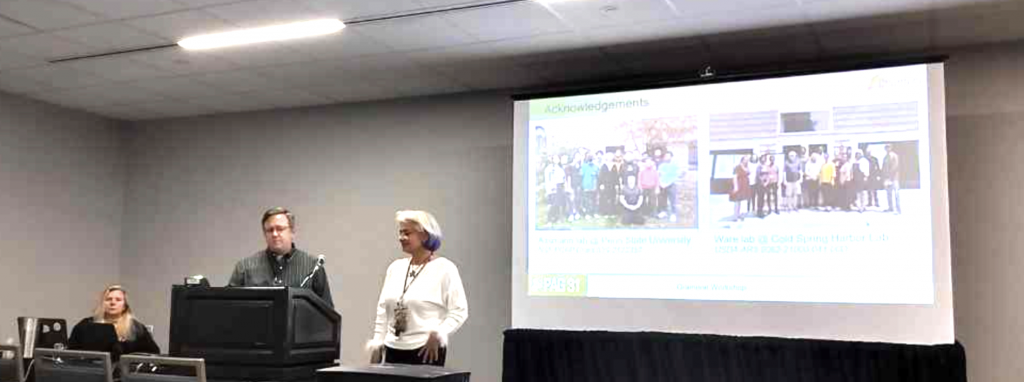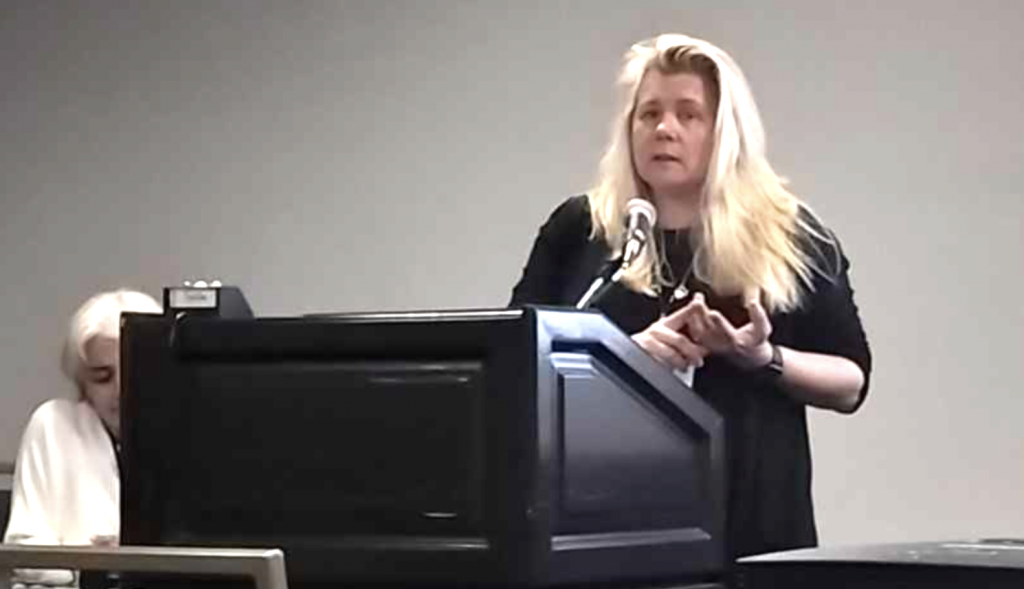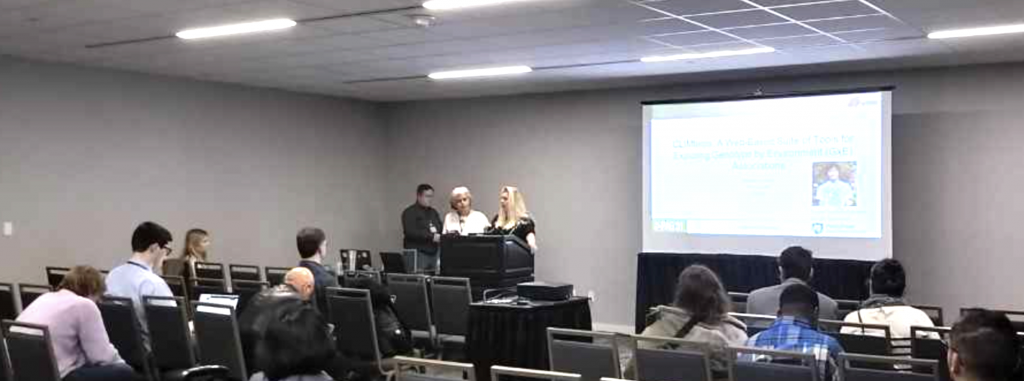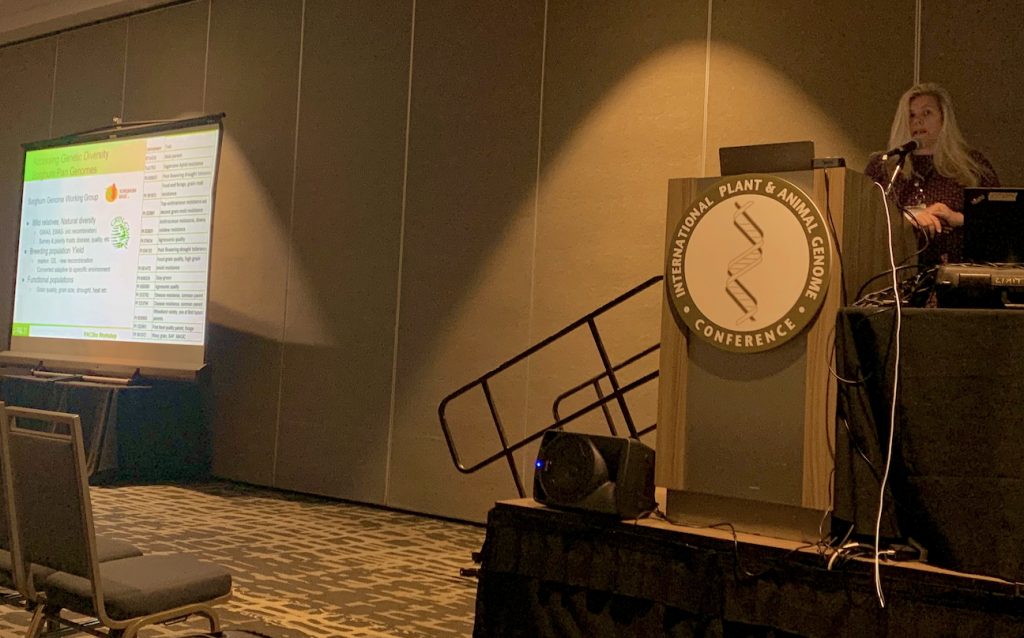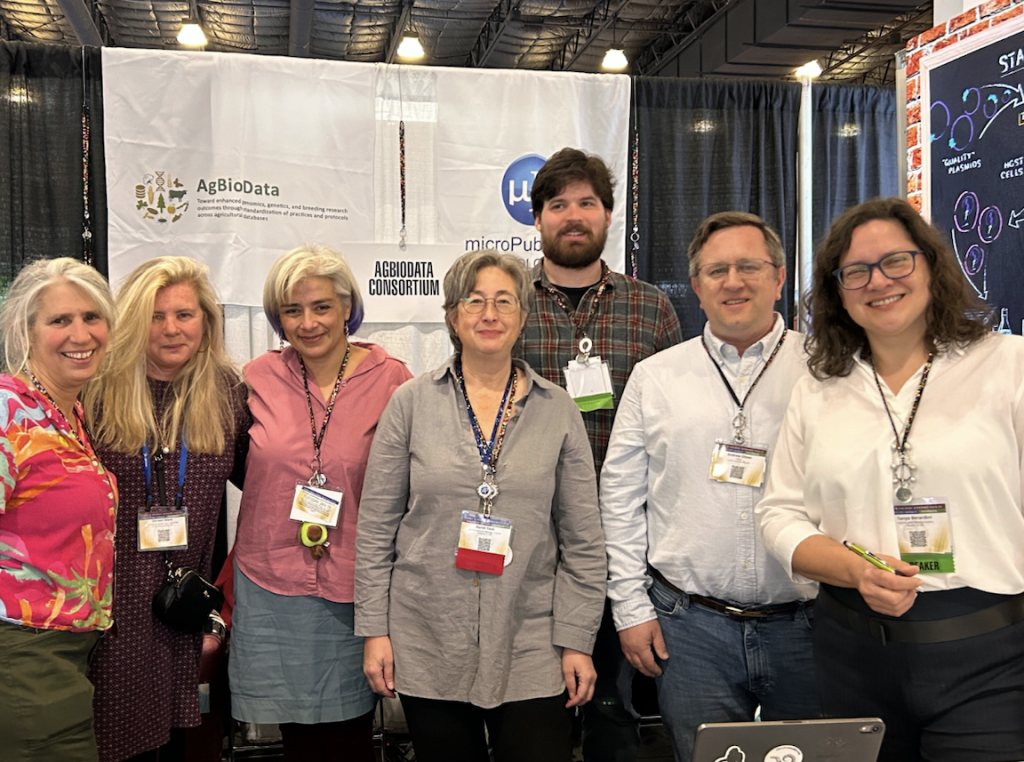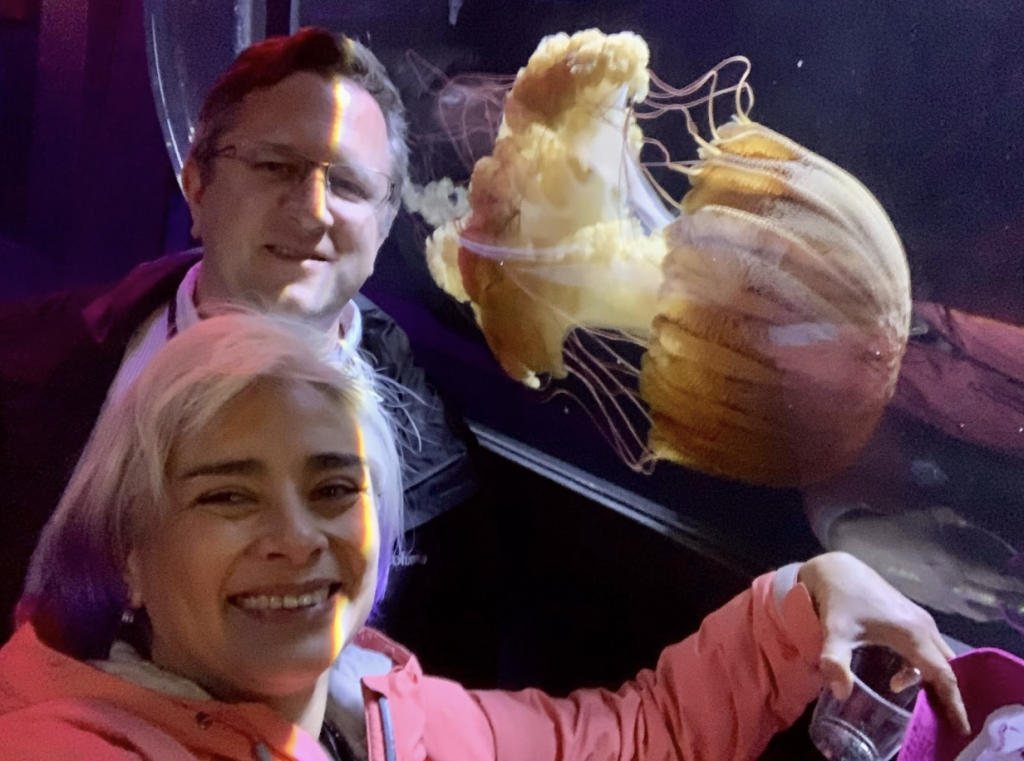The International Plant and Animal Genome conference (PAG31) took place on January 12-17, 2024 in San Diego, California. The meeting focuses on fostering an opportunity to exchange ideas and share recent developments and future plans for plant and animal genome projects through technical presentations, poster sessions, exhibits and workshops.
During the Gramene workshop, Marcela K. Tello-Ruiz, a member of the Ware lab at CSHL, gave a talk titled “Unlocking Genomic Diversity: Harnessing the Power of FAIR Principles in Gramene,” in which she emphasized the importance of submitting genetic variation to EVA and the use of stable rsIDs for tracking variants across a pan-genome. Andrew Olson, another member of the Ware lab at CSHL, presented his talk “Climtools: A Web-Based Suite of Tools for Exploring Genotype x Environment Associations,” which described studies correlating local environmental variables with genetic variation in geolocated native Arabidopsis samples and rice landraces. Abigail O’Meara, an undergraduate student from Smith College working in the Ware Lab over the summer, also presented a talk titled “Sorghum eFP browser to view gene expression anatomograms in Gramene”; read more about Abigail’s experience in her blog. Additionally, Carson Andorf, a USDA scientist gave a talk on “AI-Driven Protein Resources for Maize”, and Sushma Naithani spoke about “Training Undergraduates in Plant Gene and Pathway Biocuration for the Plant Reactome Knowledgebase.”
During the AgBioData workshop, Marcela K. Tello-Ruiz gave a talk, “Standardizing Biocuration of Genetic Variation Data to Promote FAIRification,” in which she presented challenges to biocuration of germplasm encountered by the standards for genetic variation working group. Doreen Ware, from CSHL, spoke about long-read sequencing in sorghum during the PacBio workshop in her talk, “Long-Read Sequencing Broadens Access to Genetic and Transcript Diversity for High-Value Traits in Sorghum.”
Other plenary speakers included Katrien Devos from the University of Georgia, Appolinaire Djikeng from the International Livestock Research Institute in Kenya, Scott Edwards from Harvard University’s Museum of Comparative Zoology, Dirk Inze from VIB-UGent Center for Plant Systems Biology in Belgium, Amy Marshall Colon from the University of Illinois Urbana-Champaign, Lucy Van Dorp from University College London in the UK, and Virginia Walbot from Stanford University.
